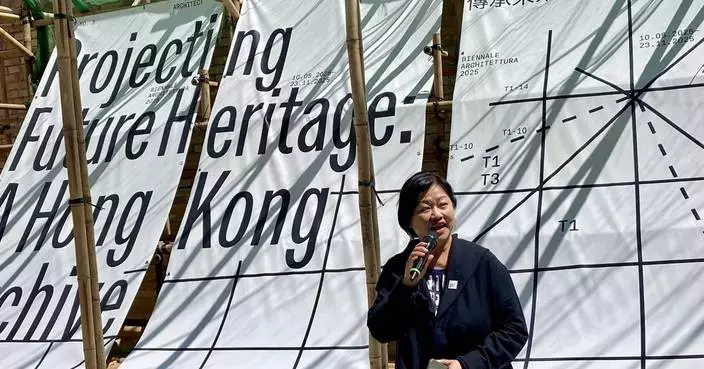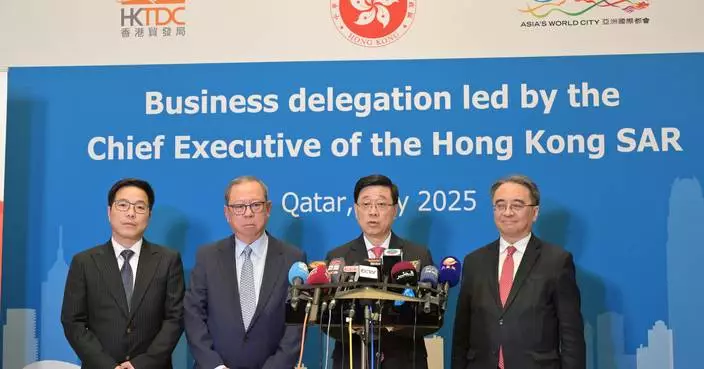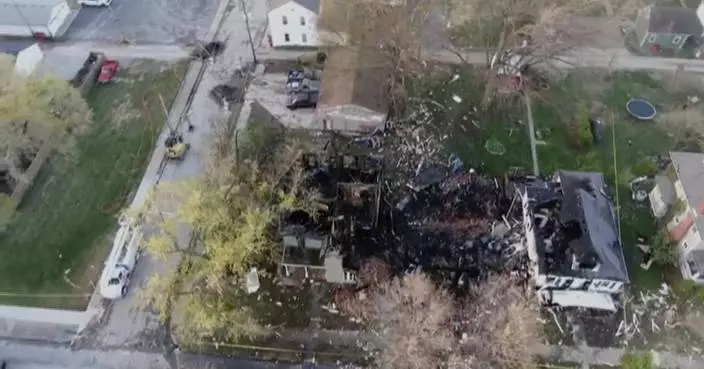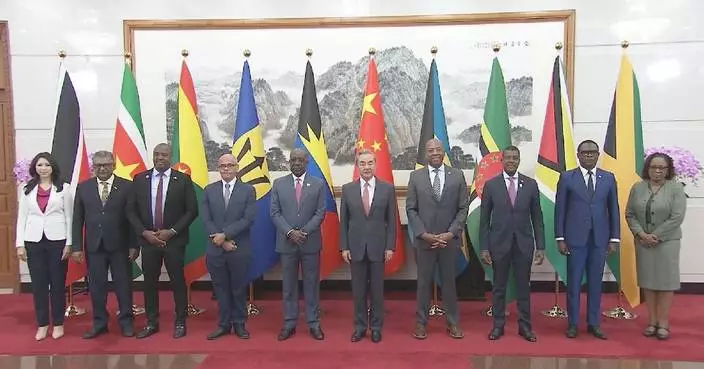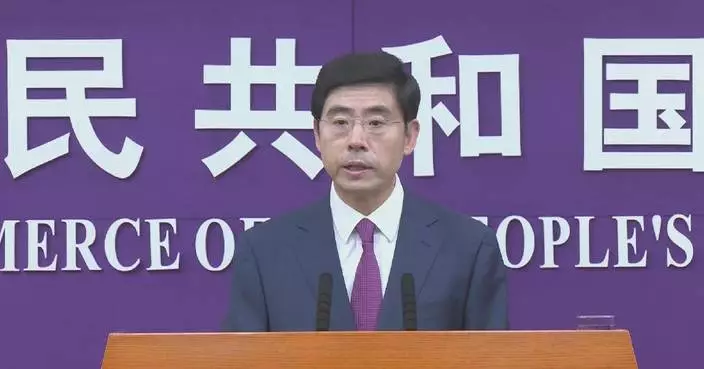CEDD submits Environmental Impact Assessment Report for Reclamation for Kau Yi Chau Artificial Islands
A spokesperson for the Civil Engineering and Development Department (CEDD) said that the Environmental Impact Assessment (EIA) Report for the Reclamation for Kau Yi Chau Artificial Islands (KYCAI) was submitted to the Environmental Protection Department (EPD) today (December 31). The EPD will, in accordance with the statutory procedures and requirements of the Environmental Impact Assessment Ordinance (EIAO), review the relevant EIA Report within 60 days upon receiving it to determine whether the report is suitable for public inspection to commence the subsequent statutory process of EIA.
The spokesperson for the CEDD said, "EIA is one of the steps in implementing large-scale engineering projects. Its purpose is to assess potential environmental impacts of the projects at the planning stage, and to formulate measures to avoid, minimise and mitigate these impacts. As for the reclamation for KYCAI, the EIA statutory process is part of the work to be carried out at the early planning stage of the project."
The CEDD prepared the EIA Report for the Reclamation for KYCAI in accordance with the provisions in the EIAO, the Technical Memorandum on EIA Process, and the EIA Study Brief. During the preparation process, a comprehensive ecological survey was carried out, and an advanced simulation model on hydrodynamics and water quality was adopted to carry out rigorous assessment on potential environmental impacts of the reclamation works in accordance with the requirements of the EIAO. Furthermore, appropriate mitigation and precautionary measures were formulated.
The CEDD also engaged a group of experts (including local, overseas and Mainland experts specialised in environment and ecology) to delve into relevant environmental issues such as hydrodynamics, water quality, ecology and fisheries. The experts provided positive feedback on the EIA Report and considered the assessment scientific and reasonable.
The proposed KYCAI, involving the reclamation of 1 000 hectares of land, is currently at its study and planning stage. Apart from the EIA Report for the reclamation submitted today, the CEDD is required to complete EIAs on other aspects including strategic roads and land development, and will commence detailed engineering design progressively. The Government will take into consideration the progress of relevant studies on the project, as well as the overall planning of various land creation and infrastructures projects, in mapping out the implementation strategy of the project in a steady and prudent manner.
Making of subsidiary legislation under Safeguarding National Security Ordinance
The Acting Chief Executive in Council today (May 13) approved the making of the Safeguarding National Security (Office for Safeguarding National Security of the Central People's Government in the Hong Kong Special Administrative Region) Regulation (the Regulation) under section 110 of the Safeguarding National Security Ordinance (SNSO) and the making of the Safeguarding National Security (Declaration of Prohibited Places) Order (the Order) by the Acting Chief Executive under section 42 of the SNSO, to provide for specific details in respect of the provisions in Chapter V of the Law of the People's Republic of China on Safeguarding National Security in the Hong Kong Special Administrative Region (HKNSL) concerning the mandate of the Office for Safeguarding National Security of the Central People's Government in the Hong Kong Special Administrative Region (OSNS), in order to fulfil the Hong Kong Special Administrative Region (HKSAR)'s constitutional duty to further improve the legal system and enforcement mechanisms for safeguarding national security. Both pieces of subsidiary legislation were gazetted on the same day and came into effect immediately.
National security is within the purview of the Central Authorities. Article 48 of the HKNSL provides that the Central People's Government (CPG) shall establish in the HKSAR the OSNS, which shall perform its mandate for safeguarding national security in accordance with the law. Chapter V of the HKNSL provides for the mandate of the OSNS, including overseeing, guiding, co-ordinating with, and providing support to the HKSAR in the performance of its duties for safeguarding national security. Also, the OSNS shall, upon approval by the CPG, exercise jurisdiction over a case concerning an offence endangering national security under the HKNSL in a circumstance specified in Article 55 of the HKNSL. According to Article 61 of the HKNSL, the relevant departments of the HKSAR Government shall provide necessary facilitation and support to the OSNS in performing its mandate in accordance with the HKNSL, and shall stop any act obstructing the performance of such mandate and hold those who commit such act liable in accordance with the law. The HKSAR Government must perform its constitutional duty to enact local legislation for the better carrying into effect of the relevant provisions of the HKNSL.
The four major areas of the subsidiary legislation are:
First, Article 49 of the HKNSL provides that the mandate of the OSNS includes overseeing and guiding the HKSAR in the performance of its duties for safeguarding national security, demonstrating the overarching responsibility of the Central Authorities for national security affairs relating to the HKSAR. The subsidiary legislation clearly outlines the Committee for Safeguarding National Security of the Hong Kong Special Administrative Region (CSNS) making an overall plan for, and co-ordinating, the implementation of the opinions provided by the OSNS on the OSNS's oversight and guidance, and the CSNS Secretariat's assistance in giving effect thereto, for the better carrying into effect of the relevant provisions of the HKNSL.
Second, Article 55 of the HKNSL provides that the OSNS shall, upon approval by the CPG, exercise jurisdiction over a case concerning the four types of offences endangering national security under the HKNSL (namely secession, subversion, terrorist activities and collusion with a foreign country or with external elements to endanger national security), under any of the three specified special circumstances, i.e. (1) the case is complex due to the involvement of a foreign country or external elements, thus making it difficult for the HKSAR to exercise jurisdiction over the case; (2) a serious situation occurs where the Government of the Hong Kong Special Administrative Region (HKSAR Government) is unable to effectively enforce the HKNSL; or (3) a major imminent threat to national security has occurred. Those circumstances target a very small number of endangering national security cases that are of a serious and egregious nature and involve a significant impact. For this purpose, the subsidiary legislation provides for the implementation details, including requirements on public servants to provide all necessary and reasonable assistance to the OSNS in a timely manner; any person must comply with legal instrument issued by the OSNS under Article 57 of the HKNSL; and the provision of immunity from civil liability for complying with the OSNS's legal instrument. Furthermore, the subsidiary legislation provides for relevant offences, including offences for failing to comply with legal instrument, providing false or misleading information, and disclosing information on the OSNS's investigation. The relevant offences are based on similar offences that already exist and are common in the legislation of Hong Kong.
Third, the subsidiary legislation provides for specific details in respect of the provisions of the HKNSL regarding protection in respect of the OSNS and its staff in the performance of its mandate, including requirements on the HKSAR Government and any public servant to provide, in accordance with the law and in a timely manner, all necessary and reasonable assistance, facilitation, support, backing and protection; admissibility of an identification document or a document of certification created or issued by the OSNS to be in evidence in legal proceedings; making the acts of wilfully resisting or obstructing the OSNS in the performance of a duty, impersonating a staff member of the OSNS, or forging documents of the OSNS, an offence; and the obligation of any person to keep confidential the work-related information in connection with the OSNS.
Fourth, the premises where the OSNS performs its mandate are declared as prohibited places. The subsidiary legislation clearly sets out the detailed addresses of the prohibited places and the clear coordinates of the points that can be linked to clearly define the entire prohibited area. The relevant prohibited places are all premises solely occupied by the OSNS to perform its mandate and do not involve private residences. The declaration will not cause any unreasonable impact on the surrounding community.
An HKSAR Government spokesperson said, "Against the increasingly turbulent global geopolitical landscape, national security risks to which the HKSAR is exposed can arise all of a sudden. Therefore, the HKSAR Government must perform its constitutional duty to continue to improve the legal system and enforcement mechanisms for safeguarding national security and to formulate comprehensive measures for safeguarding national security, including the making of subsidiary legislation for the provisions of the HKNSL concerning the OSNS's mandate in order to better implement the mechanisms for safeguarding national security, and prevent and tackle in a timely manner national security risks that may arise unexpectedly.
"The two pieces of subsidiary legislation are essential from the perspective of protection in respect of the OSNS's effective performance of its mandate under the requirements of the HKNSL. The subsidiary legislation will go through the negative vetting procedure at the Legislative Council. The HKSAR Government will make every effort for the early completion of the scrutiny with a view to effectively safeguarding national security as soon as possible - the earlier the better.
"The subsidiary legislation made under the SNSO only aims to provide for specific details in respect of the provisions of the HKNSL concerning the mandate of the OSNS at the local law level. The subsidiary legislation will not affect the lives of the general public, nor will the normal operation of any institution and organisation be affected. The places designated as prohibited places do not involve private residences and will not cause any unreasonable impact on the surrounding community."





